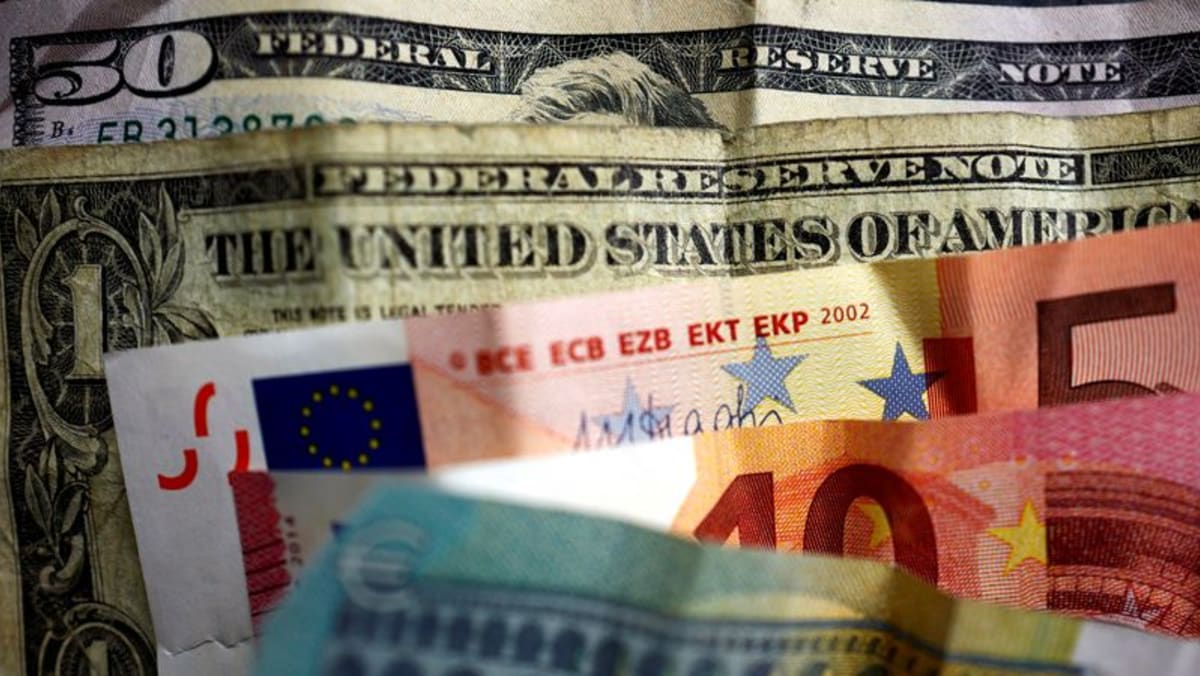Euro slides as war in Ukraine stokes inflationary shock
SINGAPORE : The euro tumbled to a fresh 22-month low on the dollar and hit multi-year troughs on the yen, Swiss franc and sterling as war in Ukraine drove up commodity prices and stoked fears of a stagflationary shock that would hurt Europe most of all.
The common currency dropped as much as 0.6per cent to $1.0864 in early Asia trade, its lowest since May 2020, opening the way to its 2020 trough around $1.0636.
It fell below one Swiss franc, hitting 0.9982, for the first time since the Swiss quit their euro peg in 2015.
Oil futures, which surged more than 20per cent last week, leapt 10per cent as the United States and Europe mull bans on Russian imports. European gas prices already hit a record on Friday.
“This is very bad news for global growth – particularly Europe, given their dependence on gas from Russia,” ANZ analysts said in a note.
“All up, it’s another big, ugly supply shock on top of lingering COVID impacts, with serious inflationary consequences that give central banks absolutely no room to ‘give growth a chance’.”
Fighting intensified over the weekend and attempts at a ceasefire to allow civilians to evacuate from the besieged city of Mariupol seem to have so far failed.
Russia calls the campaign it launched on Feb. 24 a “special military operation” and says it has no plans to occupy Ukraine.
As the euro fell to a 15-month low of 124.78 yen and touched its lowest since mid-2016 on the pound at 82.23 pence, commodity currencies rose with export prices.
The Australian dollar climbed 0.3per cent to a four-month high of $0.7390. Spot prices for Australian coal are up more than 70per cent in about a week as buyers look for alternatives to Russian energy. Wheat, another Australian export, is up about 50per cent since early February. Against the sliding euro, the Aussie is up more than 10per cent in about a month. [AUD/]
The New Zealand dollar nudged to a seven-week top of $0.6879, though some analysts think gains could be vulnerable if the geopolitical situation deteriorates and the war expands.
Sterling has been weighted by selling in the euro and fell to Friday’s two-month low of $1.3201. [GBP/]
The U.S. dollar also rose against the yen and swiss franc, last up about 0.4per cent on the franc to 0.9200 and about 0.3per cent higher on the yen at 114.93.
The U.S. dollar index steadied at 98.826, near Friday’s 22-month top of 98.925.
U.S. inflation data and a European Central Bank (ECB) meeting later this week are the main scheduled events.
Economists think the ECB will wait until the last months of the year to raise rates, according to a Reuters poll.
(Reporting by Tom Westbrook. Editing by Lincoln Feast.)
For all the latest business News Click Here

